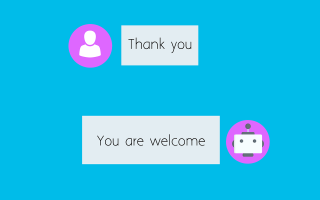
The way businesses communicate with their customers is reinvented by chatbots, a fast expanding technology.
Chatbots are quickly taking over as a crucial tool for companies aiming to enhance the customer experience because of their capacity to offer real-time responses to client enquiries.
In this post, we’ll look at the various ways that chatbots can improve customer service, speed up business operations, and raise client satisfaction levels.
Customer Service
Chatbots can offer quick and effective customer assistance, responding to common queries and addressing straightforward problems in real-time. It’s more likely than not that you’ve already encountered chatbot customer service in your daily life. If you order products online, you’ve definitely already experienced at least one.
In addition to decreasing wait times and increasing customer satisfaction, this can free up human agents to concentrate on more difficult problems. For instance, a chatbot could be built to help clients with order problems, manage accounts, and provide information about a company’s goods and services.
Lead Generation
By interacting with potential consumers and learning about their needs and preferences, chatbots can also be used to create leads.
For instance, a chatbot could be set up to start discussions with website visitors and collect information about their interests and requirements. Future marketing and sales plans can then be based on this information.
Maximizing Efficiency in Real Estate Using Chatbots
GPT Chatbot for Small Business; How to Get Started
Marketing

Chatbots can be used in marketing campaigns to promote sales and discounts, collect client feedback, and run surveys.
For instance, a chatbot could be built to collect feedback from customers about their experiences with a company’s goods and services or to send targeted promotions to clients based on their browsing and purchase histories.
Employee Productivity
By automating monotonous jobs like data input, appointment scheduling, and HR questions, chatbots can also streamline internal procedures. For instance, a chatbot could be set up to help with appointment scheduling, time off requests, and routine HR queries.
Healthcare

Chatbots are being used in the healthcare sector to book appointments, notify patients of upcoming appointments, and provide information about symptoms, treatments, and medications.
For instance, a chatbot could be designed to respond to frequent inquiries about symptoms and treatments, offer details on drug interactions and side effects, and assist patients in making appointments with their doctor.
Education

Chatbots can be used to give students information and resources, for example by responding to inquiries about the campus’s amenities, academic schedules, and financial aid.
For instance, a chatbot could be trained to respond to inquiries about class schedules, provide details about campus facilities, and help with the application process for financial aid.
Banking
Banks are now using chatbots to help customers do everything including applying for loans, transferring money between accounts, and offer account information.
A chatbot can be built to help users apply for loans and other financial products, offer account information, and aid in transferring money across accounts.
Conclusion
In summary, chatbots are a flexible and effective technology that can be used to improve customer service, streamline corporate procedures, and raise client satisfaction levels.
Future chatbot applications are likely to be much more creative as technology keeps advancing. I mean, isn’t that the way everything tech related goes?
If you’re thinking about adopting a chatbot for your company, it’s crucial to pick the appropriate platform and make sure your chatbot is properly educated to offer your consumers the best experience.





